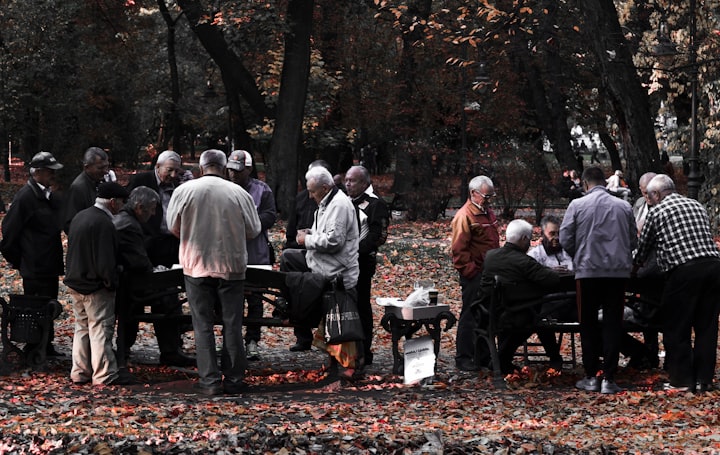Avoiding Prostatitis Post-40: Steer Clear of These 4 Behaviors
4 Key Lifestyle Changes to Prevent Prostatitis After 40

John found himself trapped in the bathroom for what seemed like an eternity. "You've been in there for almost half an hour," his wife called out, her patience wearing thin. John's irritation only grew; how could he explain that his bathroom visits lately felt incomplete, or that his sexual vitality seemed to be waning?
Concerned, he reached out to a doctor friend, who suggested it might be prostatitis and urged immediate medical consultation. At 42, John, a regular at the gym, couldn't fathom how his prostate had become a concern.
1. Impact of Prostatitis on Sexual Function
John's predicament is not uncommon among men who fear underperforming sexually due to prostatitis. However, this condition, akin to a "genital cold," doesn't necessarily impair sexual functions in its milder forms. Severe symptoms or prolonged discomfort can dampen sexual desire or lead to difficulty during ejaculation.
Thankfully, prostatitis is treatable, and with appropriate care, sexual desire and performance can bounce back.
Prostatitis vs. Prostate Cancer: Understanding the Difference
The fear that prostatitis may escalate to cancer is unfounded. Contemporary research finds no link between the two; prostatitis typically affects younger to middle-aged men, whereas prostate cancer is more prevalent among the elderly.
Early detection and treatment of prostatitis significantly improve outcomes, emphasizing the importance of prompt medical attention for symptoms.
2. Urination Duration: A Symptom to Watch
A tell-tale sign of prostate issues is urination time. Considering the average bladder holds 300-400 milliliters, with a maximum flow rate of 15 milliliters per second, urination should not exceed 30 seconds.
Exceeding 60 seconds may indicate prostate health issues, likening the bladder to a dam obstructed by a stone - the prostate.
3. The Winter Effect on Prostate Health
Prostate issues tend to spike in colder climates, highlighting the organ's sensitivity to low temperatures. The cold can cause the prostate to contract and congest, exacerbating symptoms and potentially triggering prostatitis.
Moreover, common cold medications may worsen prostate health, suggesting a cautious approach to winter wellness.
Protecting Prostate Health: Tips for Men Over 40
1. Embrace Activity, Shun Sedentary Lifestyles
Incorporating exercises such as jump rope and squat jumps can be highly beneficial, as the slight vibrations from jumping activities boost the prostate's internal metabolism. On the flip side, extensive periods of sitting can lead to prostate congestion and difficulty in fluid expulsion, increasing the risk of prostate issues for sedentary individuals.
2. Prioritize Hydration Over Spicy Diets
Maintaining a minimum water intake of 1500 milliliters daily is crucial for proper hydration. Contrastingly, regular consumption of spicy foods could lead to constipation, causing discomfort and pressure on the prostate.
3. Opt for Regular Bathroom Breaks, Avoid Harmful Habits
It's advisable to urinate at intervals of 2 to 3 hours. Neglecting the urge to urinate can strain the kidneys and bladder, complicating the expulsion process. Additionally, habits like smoking and excessive alcohol intake may result in chronic prostate congestion, worsening the situation.
4. Seek Warmth, Avoid Constrictive Clothing
The prostate's health is compromised by cold; thus, maintaining a warm environment is essential to relax muscle contractions and enhance tissue oxygen supply, easing any congestion. Tight clothing, especially around the perineum, can restrict blood flow, leading to potential health concerns due to poor circulation.
Prostatitis remains a prevalent concern, with estimates suggesting half of the male population will experience a prostate disease at some point. Traditional Chinese medicine, like the Diuretic and Anti-inflammatory Pill, can alleviate symptoms through its comprehensive herbal formula.
Prevention, however, hinges on lifestyle: adequate hydration, regular urination, exercise, and minimizing sedentary habits form the cornerstone of prostate health, underscoring the importance of a balanced approach to well-being.
About the Creator
Amanda Chou
Looking to restore your life troubled by prostatitis, epididymitis, seminal vesiculitis and other male reproductive system diseases? Here are the resource to help you in this endeavor.






Comments
There are no comments for this story
Be the first to respond and start the conversation.